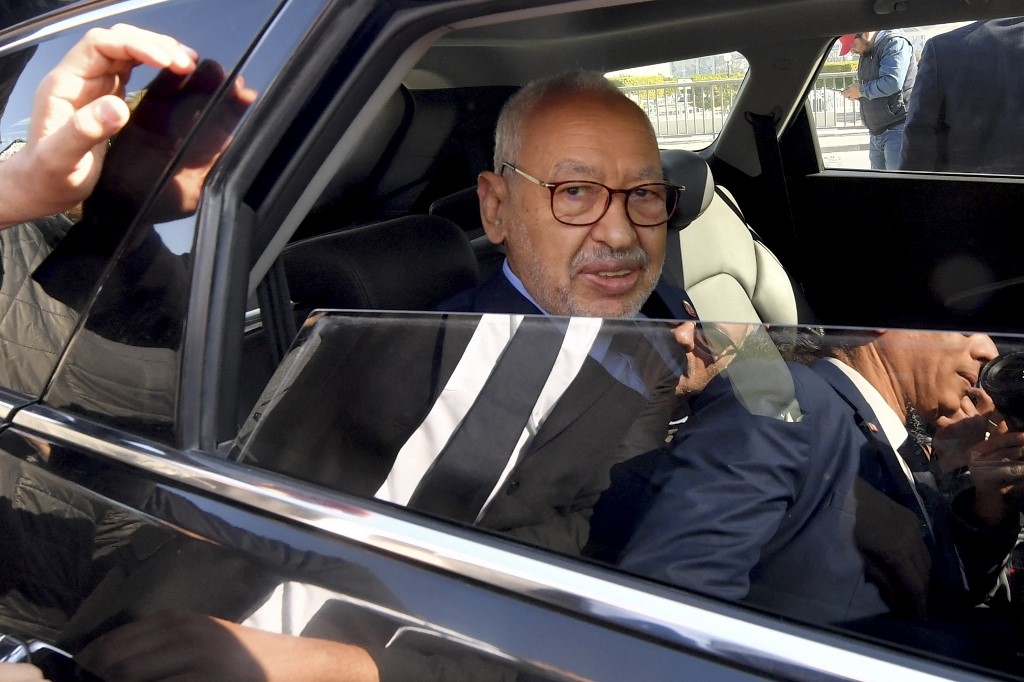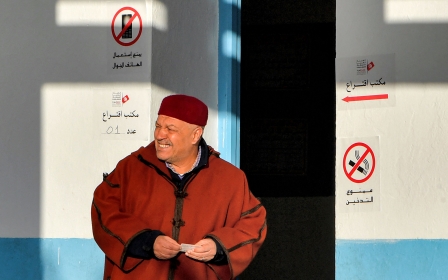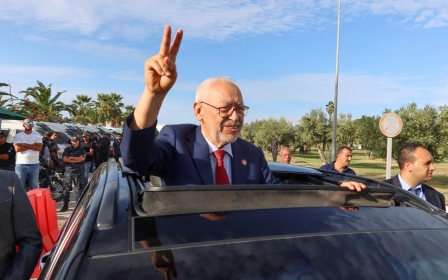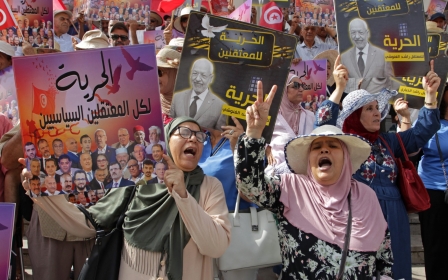Tunisian opposition leader handed new jail term over illegal financing of party

The head of Tunisia's largest opposition party was sentenced to three years in prison on Thursday, amid an escalating crackdown on critics of President Kais Saied in the North African country.
Rached Ghannouchi, 82, was sentenced along with his son-in-law, Rafik Abdessalem, over accusations that their Ennahda Party received foreign contributions to bankroll its political campaigns in 2019.
A Tunisian court also ordered Ghannouchi to pay a $1.1m fine on behalf of his party, the official Tunis Afrique Press (TAP) news agency reported.
The Ennahda Party immediately rejected the accusations, describing the sentence as part of a "steam of injustices" that the group and other "democratic forces" in Tunisia are facing.
"Ennahda has never received foreign funding, and its only bank account is under the inspection of all the judicial and financial institutions," the group said in a statement.
New MEE newsletter: Jerusalem Dispatch
Sign up to get the latest insights and analysis on Israel-Palestine, alongside Turkey Unpacked and other MEE newsletters
Thursday's sentencing of Ghannouchi adds to a 15-month jail term that a different court handed down last year after he was found guilty of supporting terrorism and inciting hatred.
Ghannouchi has repeatedly refused to appear in court to face a raft of charges that his lawyers describe as "unfounded and politically motivated".
Arbitrary and politically motivated acts of repression have proliferated since Saied unilaterally suspended parliament and dissolved the government in July 2021.
A former constitutional law professor, Saied was democratically elected as Tunisia's president in 2019 and billed himself as an outsider who could take on Tunisia's established political parties, which oversaw growth in democracy but also mounting economic challenges in the country of 12 million.
After the power grab, the plans for which were first revealed by Middle East Eye, Saied decided to rule by decree, a move his opponents and human rights groups decried as a "constitutional coup".
The North African nation held parliamentary elections in December 2022, but rights groups and political opponents labelled the process a sham after just nine percent of eligible voters decided to cast their ballots.
In recent months, opposition to Saied has grown largely due to unpopular economic reforms, soaring food prices and shortages of basic staples such as sugar, vegetable oil and rice.
In August, Saied sacked Prime Minister Najla Bouden late in the night without offering an explanation, and replaced her with Ahmed Hachani, a retired central bank employee who has shared articles on Facebook espousing conspiracy theories.
According to his now-closed Facebook page, Hachani had shared articles spouting conspiracy theories about a Zionist "Illuminati" takeover of Africa and human–animal marriages in Norway.
Middle East Eye delivers independent and unrivalled coverage and analysis of the Middle East, North Africa and beyond. To learn more about republishing this content and the associated fees, please fill out this form. More about MEE can be found here.




